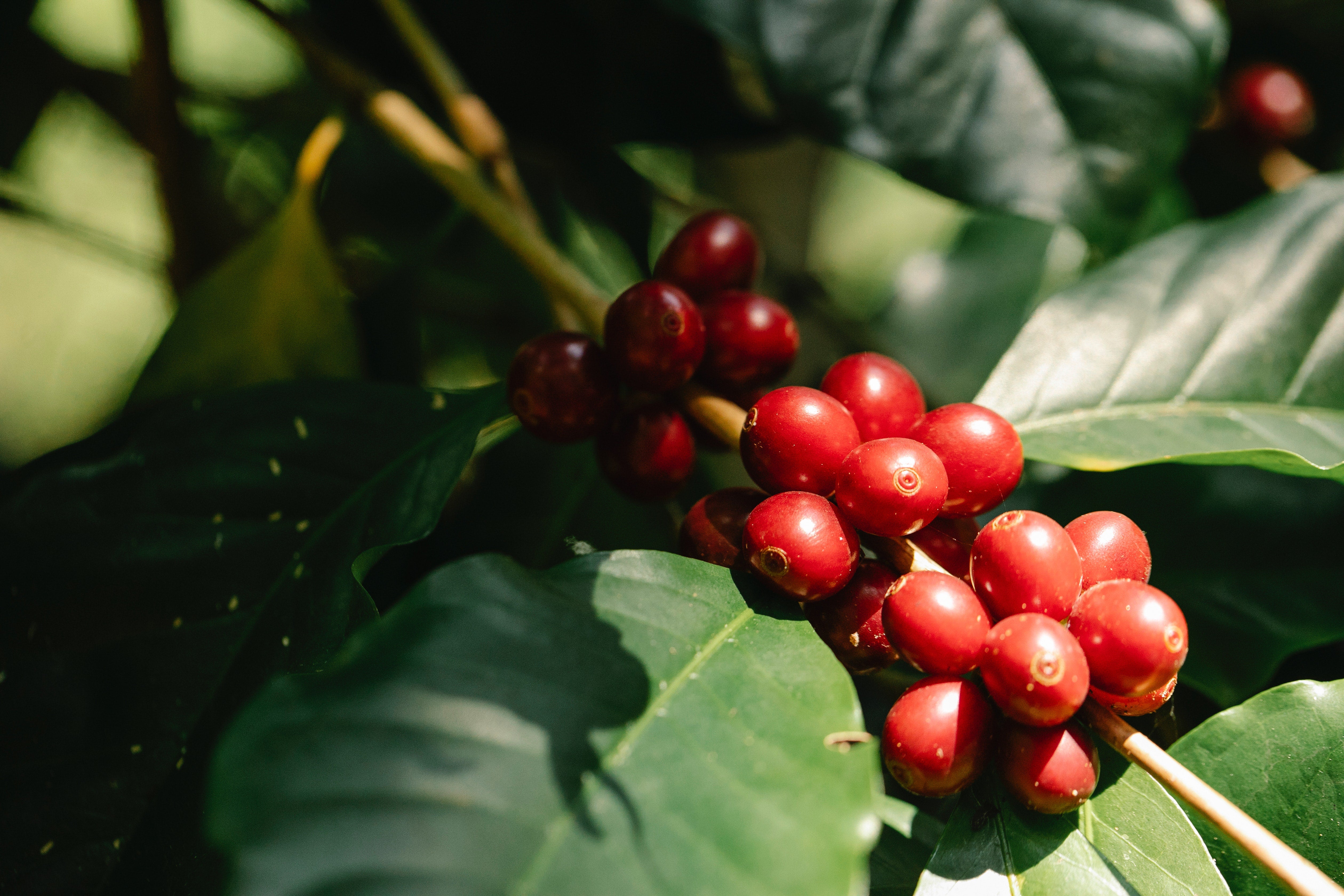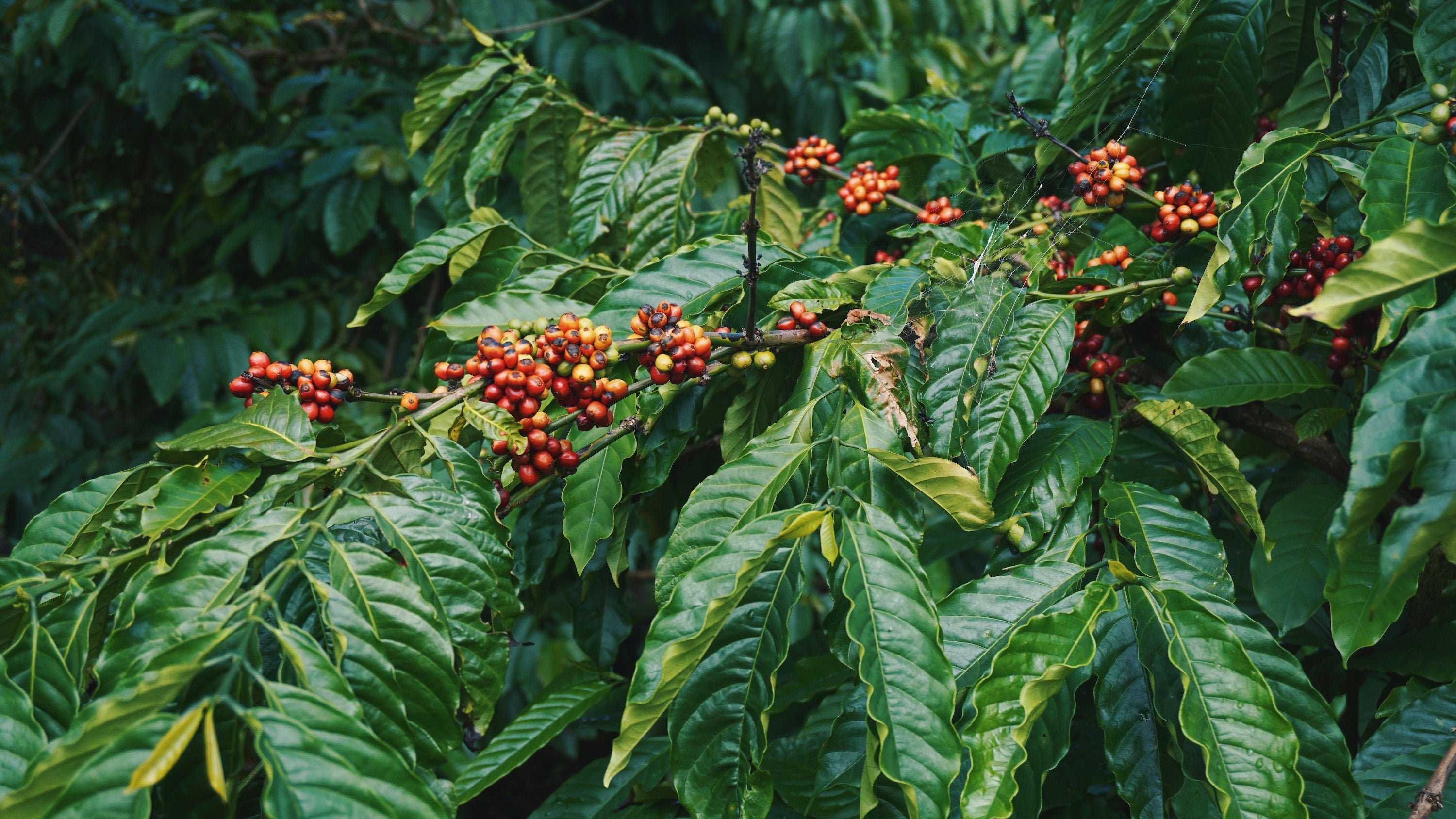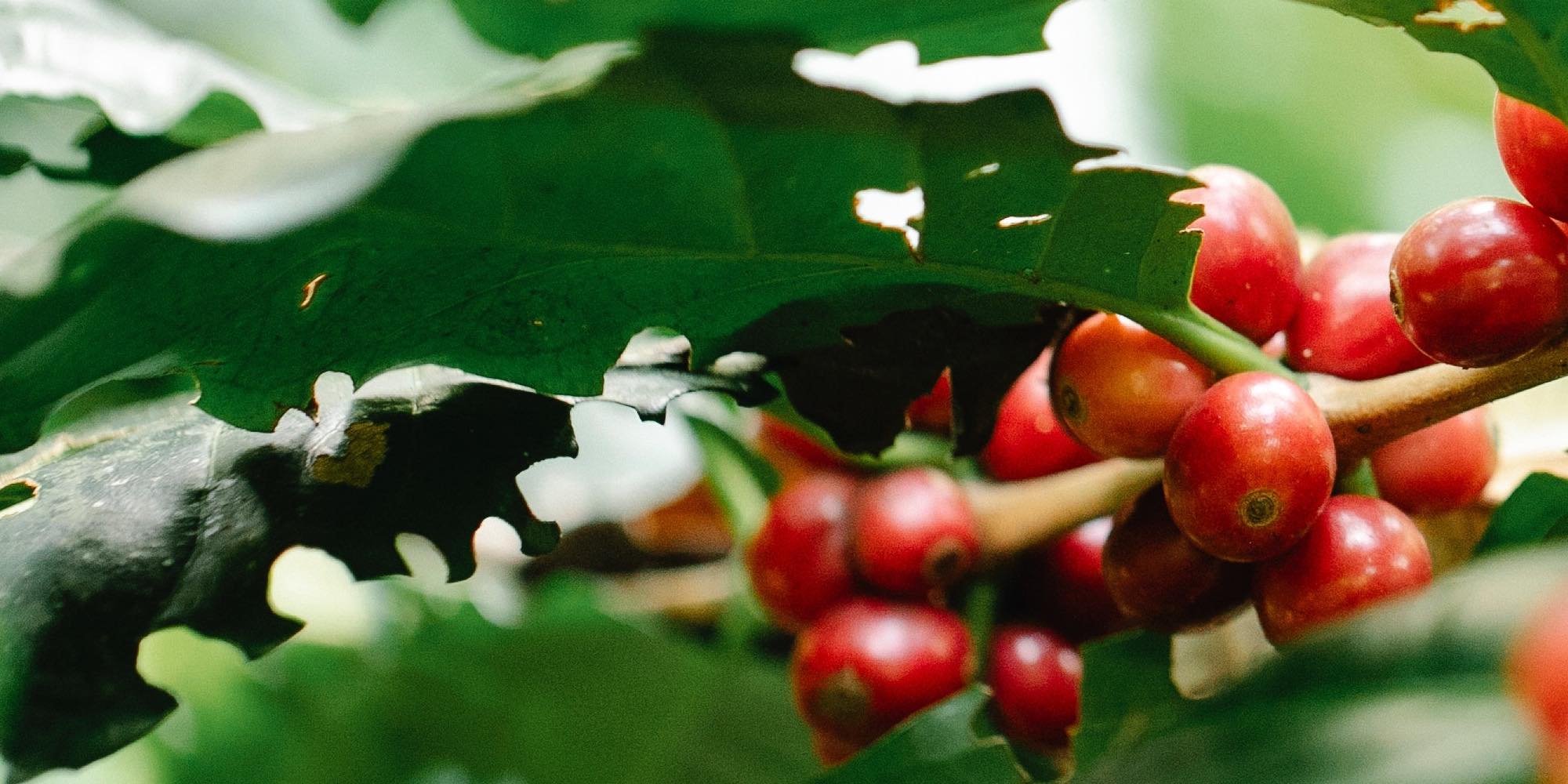
A brief history of Coffee in India
Mullayanagiri, pronounced as mool-ya-na-gi-ree, might be a bit of a tongue-twister for those unfamiliar with the languages of the Southern Indian states, but it holds significant importance in the region. Situated at an impressive elevation of 1,930 meters, Mullayanagiri proudly stands as the tallest peak in Karnataka, a state nestled in the southwest of India. This majestic peak forms a part of the Baba Budan mountain range, nestled within the sprawling expanse of the Western Ghats. While the name might not ring a bell for many, the regions of Chikmagalur and Baba Budan are synonymous with coffee culture and serene weather, drawing visitors seeking both tranquility and a cup of Joe.

Speaking of coffee, Chikmagalur holds a unique place in history as the birthplace of coffee cultivation in India. Legend has it that the seeds of this aromatic beverage were smuggled into the region by none other than Baba Budan himself, an Indian hermit enchanted by the flavors of Yemeni coffee. With the introduction of these seven magical beans, the hills of Chikmagalur bore witness to the beginnings of a thriving coffee industry. Although the exact extent of their growth remains a mystery, it wasn't until the 18th century that coffee cultivation took root, thanks to the efforts of British entrepreneurs who transformed Southern India's forests into bustling coffee plantations.

Interestingly, coffee had already established its roots in India long before tea became the beverage of choice, particularly in the northern regions. Despite India's reputation as a tea-drinking nation, coffee had gained a foothold, with Mysore coffee carving out a niche for itself in the European market by the early 1940s. However, the disruptions caused by World War II led to a temporary setback, causing the unique branding of Mysore coffee to fade from memory.

Today, India stands as the sixth-largest producer of coffee globally, with the lush forests of the Western Ghats serving as the cradle of its cultivation. Enveloped by thick canopies, coffee plants thrive in this UNESCO World Heritage site, surrounded by a rich tapestry of biodiversity. In the 2016-17 season alone, India produced a staggering 5.5 million bags of coffee, with the states of Karnataka, Tamil Nadu, and Kerala leading the charge.

What sets Indian coffee apart is its unique shade-grown cultivation method, where Arabica and Robusta beans flourish under the protective cover of towering trees. This approach not only enhances the flavor profile of the coffee but also contributes to the preservation of the forest ecosystem. The resulting brew embodies the essence of the Western Ghats, influenced by monsoons, indigenous spices, and the diverse wildlife that calls these forests home.

As the industry embraces sustainability, more estates are adopting eco-friendly practices, with certifications from organizations like Rainforest Alliance-UTZ and Fairtrade becoming increasingly common. Organic coffee, particularly from tribal lands, is gaining traction, reflecting a return to traditional farming methods and a commitment to environmental stewardship.
Despite its illustrious heritage and unparalleled quality, Indian coffee remains relatively unknown to many global consumers. However, initiatives like the India Coffee Trust are working tirelessly to promote and showcase the rich heritage of Indian coffee to a broader audience. Through collaborations with organizations like the Indian Coffee Collective, these efforts aim to elevate India's shade-grown coffees onto the world stage, celebrating its history and craftsmanship one cup at a time.

Speaking of coffee, Chikmagalur holds a unique place in history as the birthplace of coffee cultivation in India. Legend has it that the seeds of this aromatic beverage were smuggled into the region by none other than Baba Budan himself, an Indian hermit enchanted by the flavors of Yemeni coffee. With the introduction of these seven magical beans, the hills of Chikmagalur bore witness to the beginnings of a thriving coffee industry. Although the exact extent of their growth remains a mystery, it wasn't until the 18th century that coffee cultivation took root, thanks to the efforts of British entrepreneurs who transformed Southern India's forests into bustling coffee plantations.

Interestingly, coffee had already established its roots in India long before tea became the beverage of choice, particularly in the northern regions. Despite India's reputation as a tea-drinking nation, coffee had gained a foothold, with Mysore coffee carving out a niche for itself in the European market by the early 1940s. However, the disruptions caused by World War II led to a temporary setback, causing the unique branding of Mysore coffee to fade from memory.

Today, India stands as the sixth-largest producer of coffee globally, with the lush forests of the Western Ghats serving as the cradle of its cultivation. Enveloped by thick canopies, coffee plants thrive in this UNESCO World Heritage site, surrounded by a rich tapestry of biodiversity. In the 2016-17 season alone, India produced a staggering 5.5 million bags of coffee, with the states of Karnataka, Tamil Nadu, and Kerala leading the charge.

What sets Indian coffee apart is its unique shade-grown cultivation method, where Arabica and Robusta beans flourish under the protective cover of towering trees. This approach not only enhances the flavor profile of the coffee but also contributes to the preservation of the forest ecosystem. The resulting brew embodies the essence of the Western Ghats, influenced by monsoons, indigenous spices, and the diverse wildlife that calls these forests home.

As the industry embraces sustainability, more estates are adopting eco-friendly practices, with certifications from organizations like Rainforest Alliance-UTZ and Fairtrade becoming increasingly common. Organic coffee, particularly from tribal lands, is gaining traction, reflecting a return to traditional farming methods and a commitment to environmental stewardship.
Despite its illustrious heritage and unparalleled quality, Indian coffee remains relatively unknown to many global consumers. However, initiatives like the India Coffee Trust are working tirelessly to promote and showcase the rich heritage of Indian coffee to a broader audience. Through collaborations with organizations like the Indian Coffee Collective, these efforts aim to elevate India's shade-grown coffees onto the world stage, celebrating its history and craftsmanship one cup at a time.




3 reacties
This blog offers an engaging overview of how coffee began in India, tracing its origins from Baba Budan’s legendary beans to the rich, shade-grown coffee culture of Karnataka’s hills.
Simha Cafe
Insightful journey through India’s coffee history, showing origins, legends, and evolution of cultivation and culture.
Simha Cafe
Great article! It’s always inspiring to see people talk about India’s deep coffee roots. I recently started exploring Indian roasts and brewing them at home — each cup feels like a journey through that history. Big fan of home-brewing and learning from brands like Latteholic that celebrate Indian coffee culture.
Srashti Jain
Laat een reactie achter
Deze site wordt beschermd door hCaptcha en het privacybeleid en de servicevoorwaarden van hCaptcha zijn van toepassing.